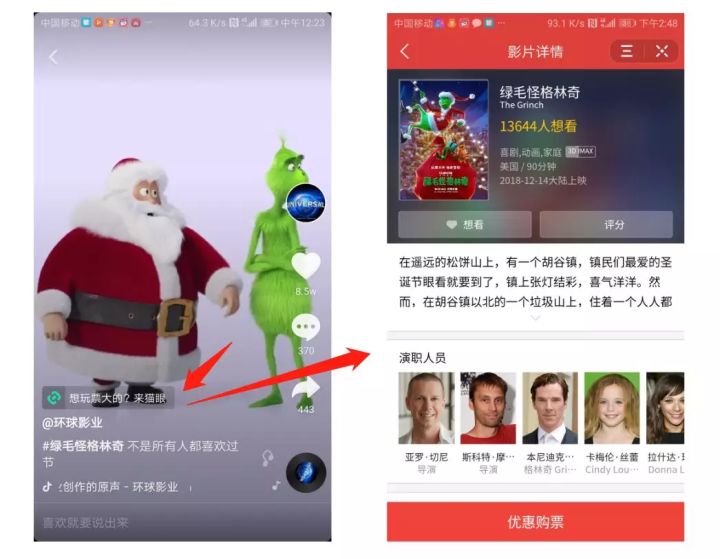ByteDance-backed short video app Douyin, known as TikTok internationally, has rolled out a long-awaited mini-program feature, allowing users to access various services without leaving the app. The feature is currently only available in its Android app and not yet on iOS.
Mini-programs, initially created for Wechat, are lightweight alternatives to apps that run inside existing applications on a user’s mobile phone.
In October, users found a “mini-program” section in the app’s settings. However, mini-programs only became functional on Dec. 13.
The feature is currently being used by several popular accounts on Douyin. For example, by tapping a small green icon in a promotional video posted by Universal Studios, users are redirected to a mini-program for China’s popular ticketing platform Maoyan to purchase tickets for The Grinch. Payment can be made through Alipay.
Douyin mini-programs can also be shared externally to WeChat in the form of QR codes. WeChat users activate a Douyin mini-program by scanning the codes.
Tencent’s WeChat first launched the mini-program feature in 2017. After a slow start, the feature’s popularity has ballooned, with 1.5 million developers having created more than 1 million mini-programs as of November this year.
Chinese tech giants have attempted to catch up to capitalize on the rise of the easy-to-use feature. In 2018, both Alibaba’s Alipay and Baidu included mini-programs into their ecosystem. Douyin’s sister app Toutiao is also testing its own mini-programs.
Integration of mini-program could boost Douyin’s social e-commerce functions in providing users with better shopping experiences and creating an all-in-one entertainment and shopping platform. This comes in line with the boom of content-driven e-commerce in China. Douyin rival Kuaishou doubled on e-commerce features this week through the launch of updated e-commerce features. At the same time, Alibaba’s Taobao buddied up with video streaming site Bilibili to boost commercialization of content-driven e-commerce.
– This article originally appeared on TechNode.







